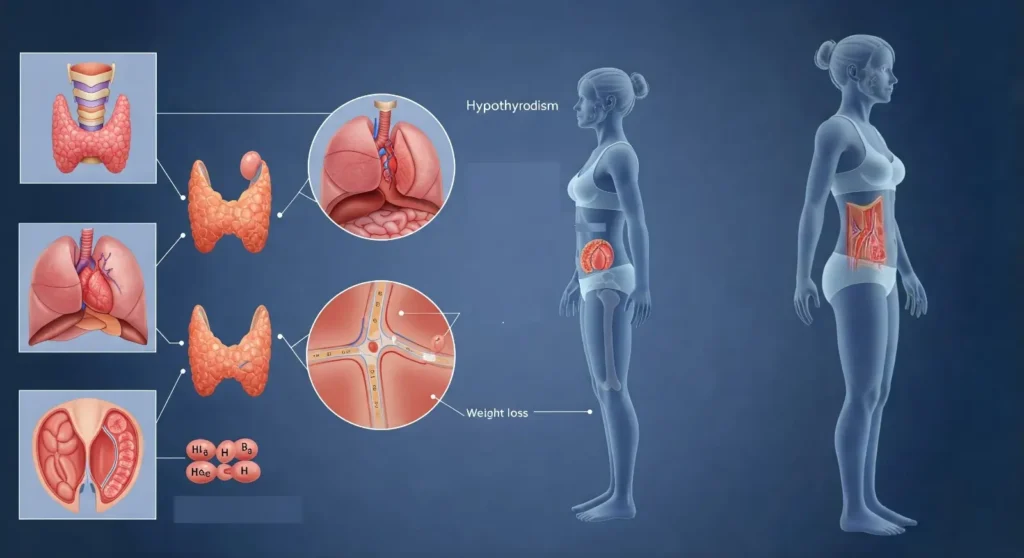
Many women struggling with hypothyroidism find themselves trapped in a frustrating cycle— characterized by eating less and exercising more. Yet they see no change on the scale. And the exhaustion, bloating and mental fog, that tag along only add to their distress.
One such case was of Mrs. Priya, a 39-year-old woman from Pune, who sat in my office, with her eyes filled with frustration.
“I just don’t get it,” she sighed. “I’ve tried everything— skipping meals, fasting, cutting carbs—but my weight just won’t reduce! Instead, I feel worse… exhausted, bloated and mentally drained.”
Priya’s story is one I hear often. The biggest misconception about hypothyroidism-related weight gain is that it can be reversed by eating less. But what many don’t realize is that extreme calorie restriction can make things only worse—slowing metabolism even further and intensifying fatigue.
Thyroid’s Role in Metabolism
The thyroid gland is the body’s metabolic support system, which is involved in regulating energy, digestion and even our mood. When hypothyroidism slows down this engine, our body finds it hard to burn calories efficiently.
Moreover, restrictive dieting only worsens this issue, like:
• Fasting and extreme calorie reduction suppress T3 and T4 hormone production, further slowing metabolism.
• Severe carb restriction deprives the thyroid of the glucose it needs to function, signaling the body to conserve energy and lower metabolism.
• Muscle loss instead of fat loss occurs, weakening the body and further reducing metabolic rate.
Also, when the body enters ‘survival mode’, it slows down even more to conserve energy—making weight loss nearly impossible.
Then, what should be the right approach?
Instead of restrictive dieting, the focus should be on sustaining the thyroid with a balanced, nutrient-rich diet that helps stabilization of metabolism and supporting hormone production.
Even for Priya, I designed a holistic, thyroid-friendly plan emphasizing on small, frequent meals to maintain metabolism. Complex carbohydrates like millets and quinoa provided a sustained form of energy, while protein and iodine-rich foods aided in the thyroid hormone production. Selenium and zinc rich foods enhanced function and healthy fats, on the other hand, balanced hormones. We included iron- and B12-rich foods to combat anemia, anti-inflammatory omega-3s to reduce inflammation in her body and probiotics to improve her gut health. Stress management through yoga and meditation was also suggested, to help regulate her cortisol, further preventing thyroid suppression. And therefore, by shifting from deprivation to nourishment, Priya restored her energy, digestive health and and laid the foundation for a long term healthy body, in general—without extreme dieting.
The Transformation: A Shift from Weight Loss to Wellness
After four weeks of following this balanced, sustainable plan, Priya felt much lighter—not just physically, but also mentally and emotionally.
“I’m not just chasing a number anymore,” she would say. “I feel more energetic, my digestion has improved and I don’t feel like I’m starving all the time!”
And that’s the real secret—weight loss isn’t about deprivation, but nourishment. When you fuel your body correctly, healing happens naturally.
If you’re struggling with hypothyroidism, stop punishing your body with extreme diets. Instead, feed it, support it and let the transformation unfold.

Recent Comments